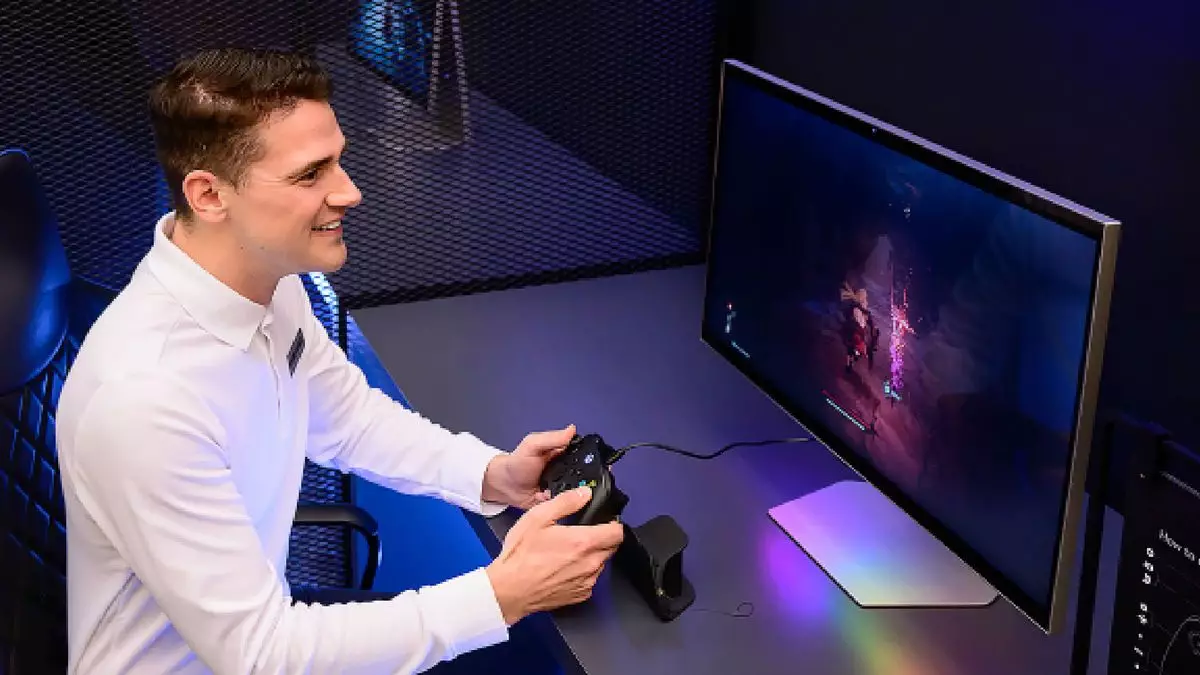The emergence of 3D cinema promised a transformative experience that, while captivating in theory, never lived up to grand expectations for many viewers. Despite limited successes, the evolution of technology has birthed new hopes, particularly in the realm of gaming. Recently, Samsung has made headlines with the announcement of a collaboration with Nexon Korea and Neople to usher in an immersive gaming experience via their upcoming title, *The First Berserker: Khazan*. This partnership aspires to refine glasses-free 3D gaming, an idea celebrated yet critiqued for years.
At the core of this initiative lies the innovative Samsung Odyssey 3D monitor, which aims to deliver an experience devoid of the cumbersome eyewear that often detracts from enjoyment. Utilizing groundbreaking technology such as a front-mounted lenticular lens and eye-tracking capabilities, this monitor endeavors to generate depth perception by manipulating the light that reaches the viewer’s eyes. The pivotal concept hinges on differing angles of light projection, a concept that aims to create a three-dimensional illusion. However, skepticism surrounds the effectiveness of such technology.
Historically, glasses-free 3D experiences have divided audiences. Many users, including myself, have struggled to engage with previous iterations of this technology. Flashbacks to childhood and the tedious endeavor of mastering magic eye puzzles come to mind. As I reflect, it’s apparent that my inability to appreciate the depth effects has left me wary of any promises surrounding this miraculous technology.
Samsung’s latest attempt, unveiled during CES 2024, showcases advanced functionalities powered by stereo cameras and integrated light field displays. These advancements are designed to tackle the perennial issue of crosstalk in 3D visuals—a challenge that causes merging images to appear distorted. The creators have outlined their intent to fine-tune focal distances based on in-game scenarios, thereby enhancing the clarity, particularly during climactic encounters and pivotal cutscenes. This meticulous attention to detail could potentially redefine how players engage with 3D gaming.
Nevertheless, despite these promising prospects, the current capabilities for converting 2D content to 3D remain limited, currently applicable only to full-screen videos seen through web browsers. The aspiration for custom-tailored gaming content continues to be a distant goal, stymied by the rich and expansive offerings of rivals like Acer, which has ventured into 3D gaming through its partnership with SpatialLabs.
Although the gaming community has expressed curiosity regarding *The First Berserker: Khazan*, the overarching sentiment remains cautious. In light of the rollercoaster history of 3D in entertainment—from its bold launch to the quick decline into obscurity—enthusiasts face the reality that this next venture could either mark a significant breakthrough or devolve into yet another fleeting trend.
Commentators in tech circles have pointed out that while the immersive experience offered by virtual reality (VR) continues to grow, the push for glasses-free gaming displays may represent a logical evolution for the medium. The collective hope among gamers, akin to that of winning a lottery, rests on the possibility that we are on the brink of an era where 3D gaming reaches its potential—without the confinement of specialist equipment.
As I contemplate the trajectory of glasses-free 3D technology, I recognize a paradox. On one hand, there is undeniable excitement about what Samsung and its partners are attempting to accomplish; on the other hand, the shadows of past failures loom large. The ultimate success of *The First Berserker: Khazan* and the Samsung Odyssey 3D monitor will hinge not just on innovative technology but on the collective willingness of consumers to embrace a new era of gaming experiences.
As we stand on the cusp of possible reinvention in the gaming landscape, the hope remains that this time, glasses-free 3D will not only capture interest but also holds the key to enriching the immersive experience that gamers crave. The future may well be on the horizon, waiting for those of us brave enough to take the leap into this evolving dimension of entertainment.

